Does military intervention increase the terror threat?
- Published
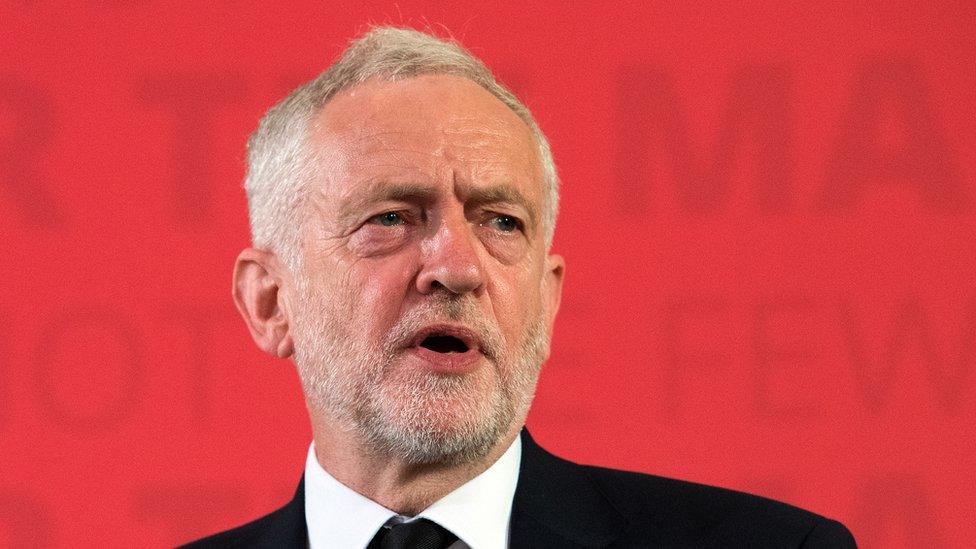
In a narrow sense, Jeremy Corbyn's assertion that Britain's recent military interventions have increased the risk of terror attacks in the UK is widely accepted. Many would say it's a statement of the blindingly obvious.
Taken in isolation, most of Britain's security, defence and diplomatic community readily accept that an increased terror threat inside the UK follows after any military intervention in a predominantly Muslim country.
We don't need to look far for the evidence of that. On the eve of Tony Blair's invasion of Iraq in March 2003, the government's Joint Intelligence Committee was blunt in its assessment of possible consequences of war with Iraq, external: an assessment which was then marked Top Secret but was declassified to allow its publication as part of the findings of the Chilcot Inquiry.
"The threat from al-Qaeda will increase at the onset of any military action against Iraq. They will target Coalition forces and other Western interests in the Middle East. Attacks against Western interests elsewhere are also likely, especially in the US and UK, for maximum impact," it stated.
"The worldwide threat from other Islamist terrorist groups and individuals will increase significantly. Al-Qaeda associates and sympathisers may well attempt chemical or biological terrorist attacks in the Gulf, including against UK civilian targets there, in the event of war with Iraq. While individual attacks are likely to be small-scale they may be numerous. Individual attacks might inflict relatively few casualties, but will cause significant alarm."
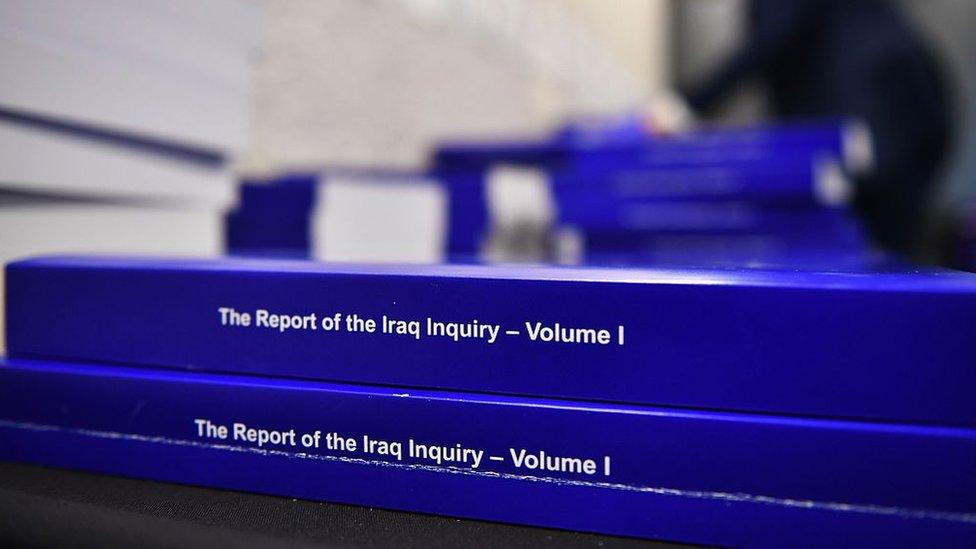
Intelligence documents revealed in the Iraq Inquiry report showed concerns that UK intervention could increase the threat of terror
In fact, the largest single terror attack in Britain took place on 7/7, in July 2005, of course. Few dispute that Britain's decision to join the invasion of Iraq was used by the 7/7 attackers and those who had radicalised them as part of their excuse for killing civilians in Britain.
It is also true that subsequent British military action overseas - including in Libya - has been used by extremists to justify further massacre of innocents in the UK.
But Jeremy Corbyn's critics say none of this necessarily means that Britain's military actions overseas were wrong, merely that they definitely had consequences.
Separately, many of them argue that Mr Corbyn, even if he didn't intend it, has been "crass" and "insensitive" in his timing, and seems to be providing some sort of excuse for the Manchester bombing, however careful he was to deny that.
So if the link between British military intervention and an increased risk of terror attacks in Britain is not seriously disputed, where did that history of intervention originate?
Largely in the foreign policy pursued by Tony Blair, as prime minister, intervening first in Sierra Leone, external, then in Kosovo, external, with a large measure of public support, to protect civilian populations, including the Muslim majority in Kosovo, from mass murder.
It was the same sort of motive, the responsibility to protect civilians at imminent risk, which was put forward by David Cameron and the then French president Nicolas Sarkozy, to explain their intervention against the regime of Colonel Gaddafi in Libya. The British public was divided over that, and even more so over the invasion of Iraq.
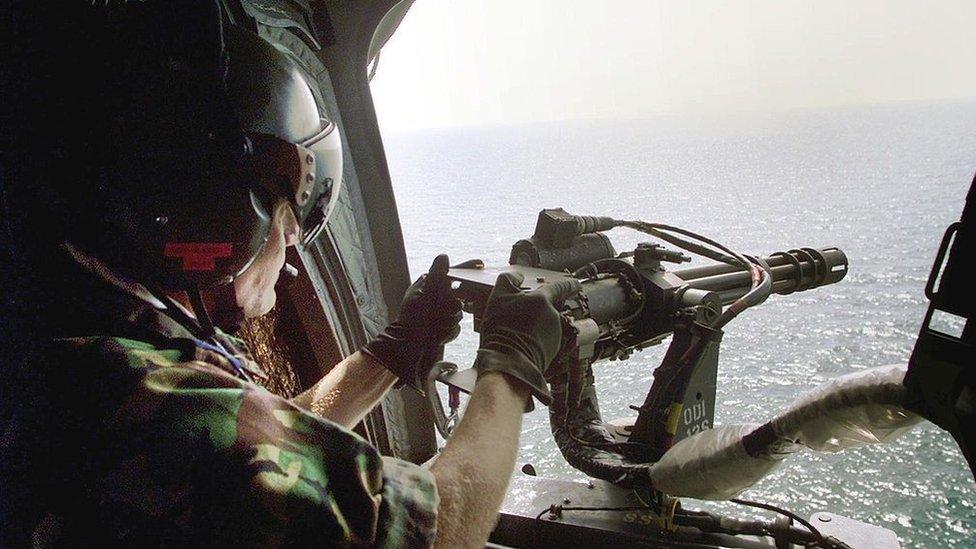
Sierra Leone was one of several places in which the UK military intervened when Tony Blair was PM
The prime minister herself, of course, came close to repudiating the Blair doctrine of British military intervention and, by implication, David Cameron's action in Libya, in her United States speech, external last January.
"This cannot mean a return to the failed policies of the past. The days of Britain and America intervening in sovereign countries in an attempt to remake the world in our own image are over. But nor can we afford to stand idly by when the threat is real and when it is in our own interests to intervene.
"We must be strong, smart and hard-headed. And we must demonstrate the resolve necessary to stand up for our interests."
Mrs May was not absolutely ruling out future British military action overseas, but she was recognising there had been failures.
All of this said, extremism in the name of Islam, or in the name of an extremist interpretation of Islam, long predates any of Britain's modern military interventions in countries with Muslim majorities, particularly in Afghanistan, Iraq and in Libya.
Al-Qaeda has been actively killing civilians since the mid-1990s, achieving global notoriety by killing hundreds of civilians in the 1998 bomb attacks in Nairobi and Dar es Salaam. And you can trace a history of grievance in the Middle East against the major imperial powers, including Britain, far further back than that.
Equally, not taking a frontline part in foreign wars is also no protection against Islamist terror.
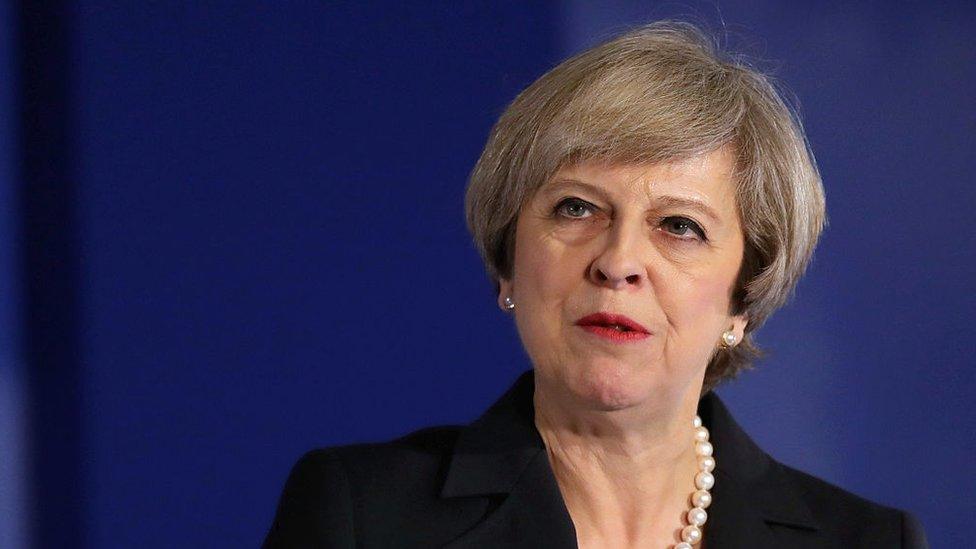
Theresa May has recognised failures in the policy of UK military intervention
Neither Belgium nor Germany played any substantial fighting role in Afghanistan, Iraq, and still less Libya.
Germany has been heavily criticised by some other EU countries for being too generous to migrants, the majority of them Muslims.
That hasn't kept those countries safe. Both have suffered mass-casualty civilian attacks, just as Britain, France and others have done.
The arguments provoked by Jeremy Corbyn are complex. He is accused of being selective and simplistic in his analysis. His critics fault his timing.
At an acutely sensitive time, the speech has reopened debate about some of the most difficult issues of foreign policy which touch all of our lives - above all, perhaps, the question: how do we protect tolerance against the intolerant?
- Published26 May 2017
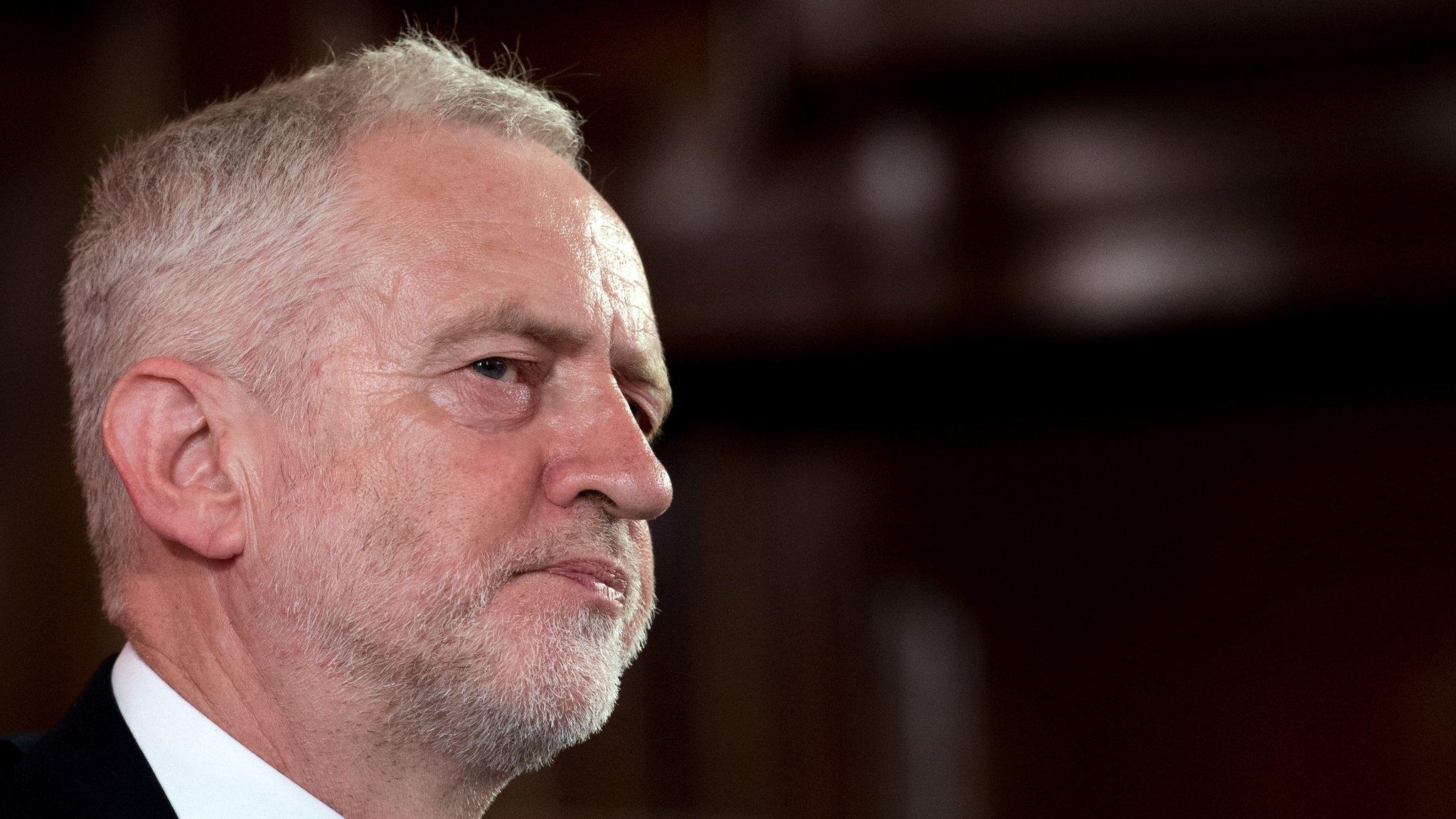
- Published26 May 2017
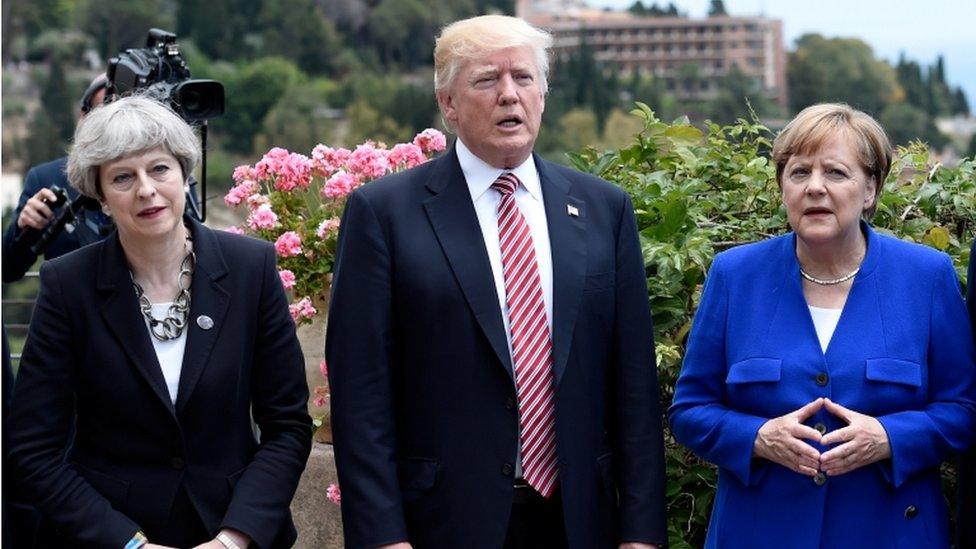
- Published23 May 2017
